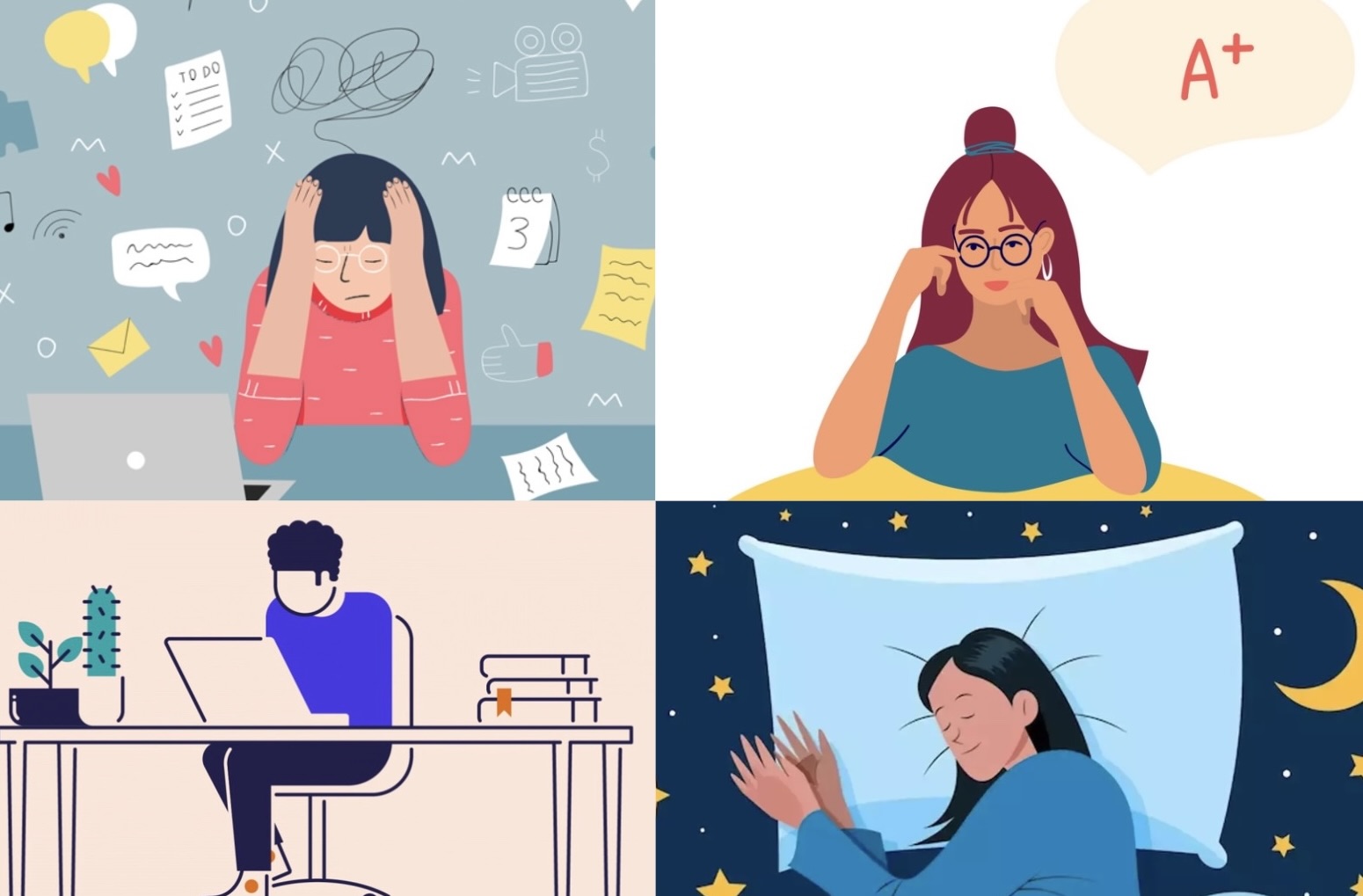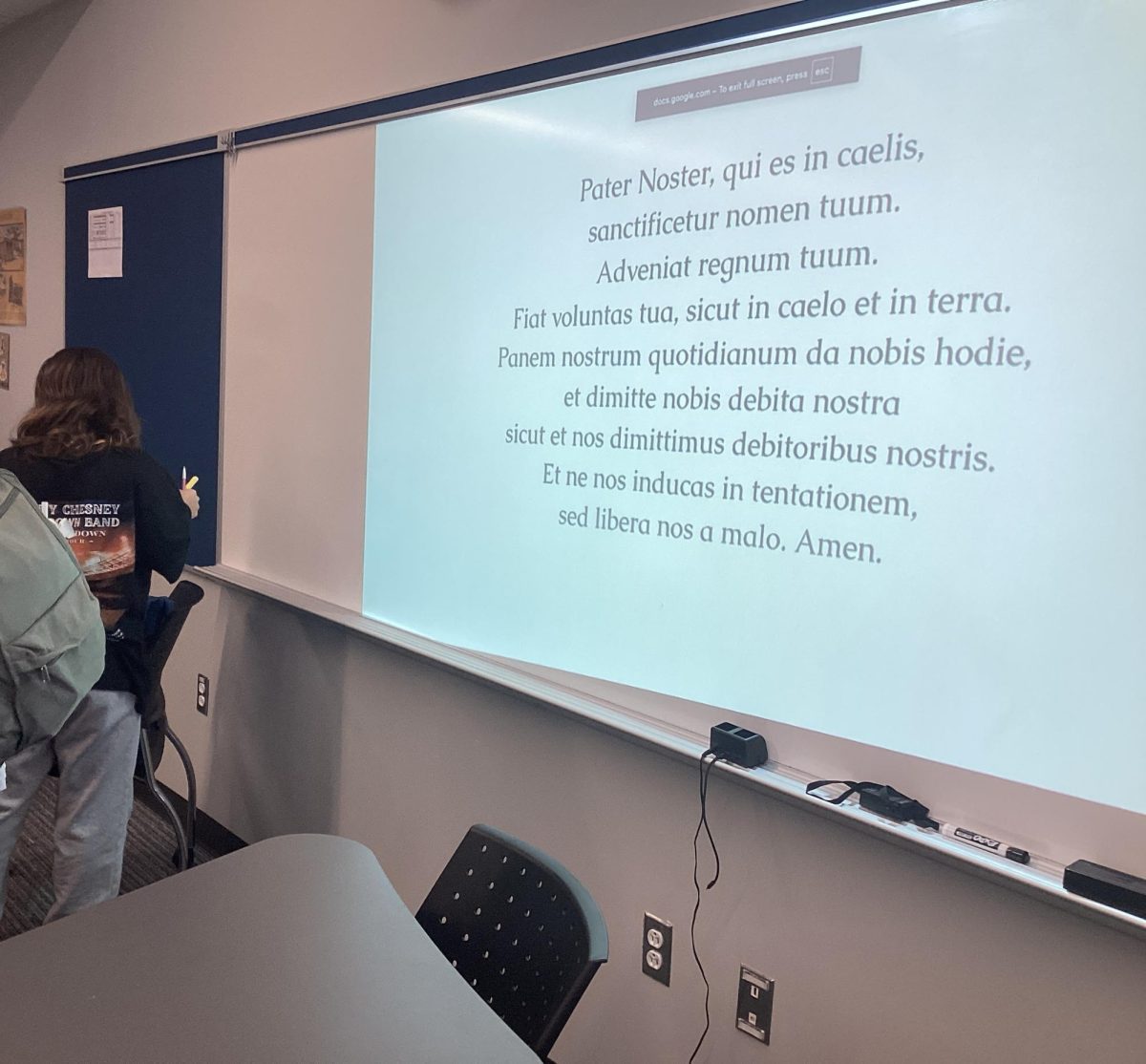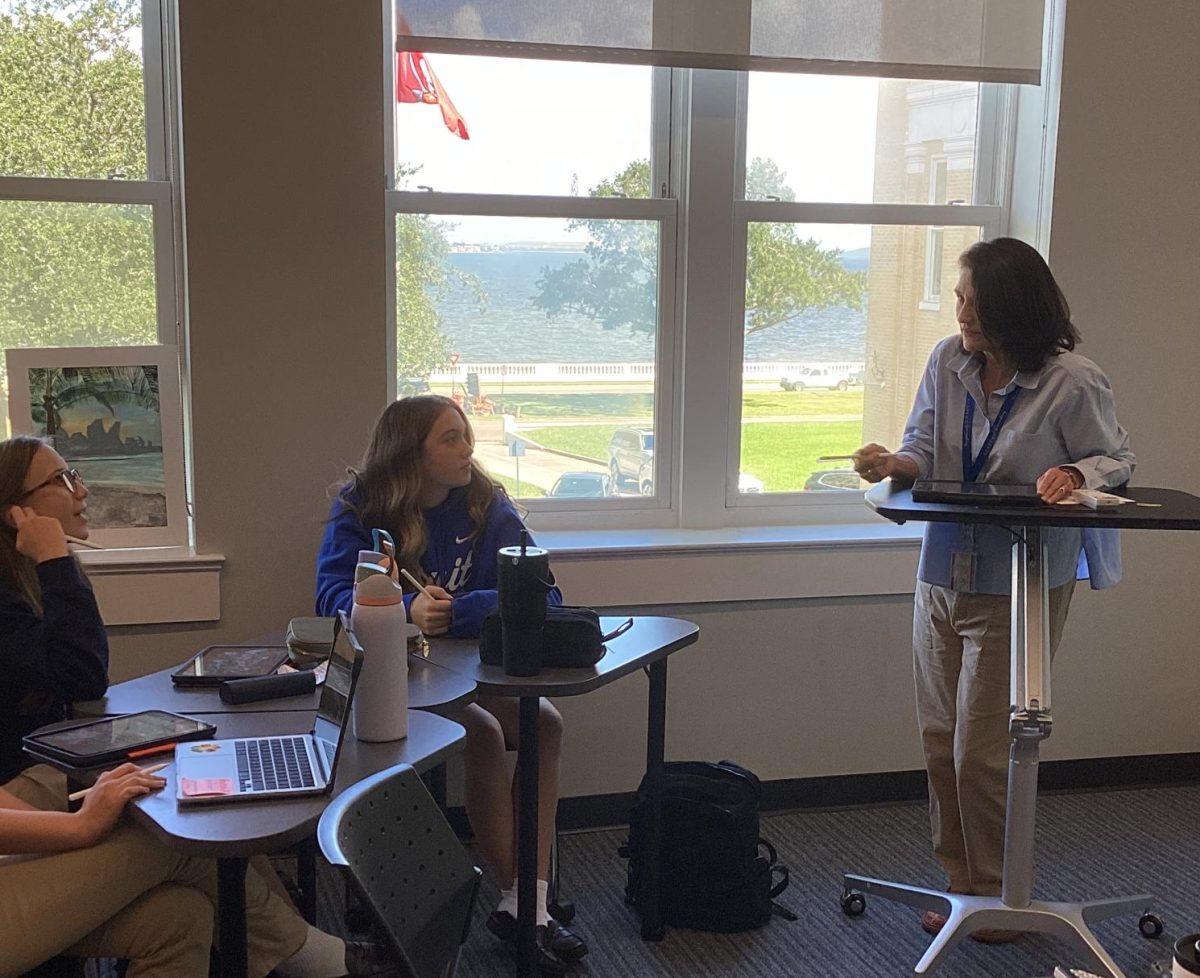In the midst of the holiday season, Christmas Formal, and the impending break, the week of finals can seem like the most stressful, and sometimes even scary, week to experience. While it may be difficult to try to maintain a healthy mindset while preparing for the various tests coming up, there are scientifically-proven and experienced tips and tricks that can reduce the stress and anxiety that comes during this time of year.
1) Getting sleep
It seems almost impossible to have enough time to study for exams while getting enough sleep, but it is essential to performance on tests. It is key to get at least eight hours of sleep while preparing and taking final exams in order to satisfy the body’s needs for rest. Without sleep, the brain can lose the capacity for memorization and concentration or suffer from a decrease in accuracy, and the stress one feels will only increase. To actually get enough sleep, make sure to refrain from caffeine and technology before bed, eliminate bedroom distractions, and schedule the time to go to sleep and wake up for the days leading up to exam week.
2) Get study space organized
Something that is small but works academic wonders is keeping a clean and organized study space, along with organized materials. A crucial component of a clean study space include decluttering the desk by keeping just necessary materials out. Putting the phone on do not disturb and leaving it far from study space is also important for removing distractions. For a productive environment, make sure the room is quiet and that there is enough light, so it does not make studying tiring. Lastly, color-coding the information for better understanding is beneficial, in addition to condensing the important information. With all of these steps, there should be little distractions and a functional place to study for those long study sessions.
3) To-do lists
To-do lists are important because they help keep track of what is needed to be done and studied for. While to-do lists are critical, make sure to put what is actually doable, instead of creating an unrealistic to-do list that is never going to be finished. Create a list of small tasks that will definitely be completed. This will keep schedules organized and help boost the feeling of being productive. Use apps like Notion, Pomodoro to-do, Google Calendar, a paper planner, or even Google Docs, to get a secure to-do list and plan ahead for tasks.
Sophomore Lucy Ospina likes to organize her homework tasks. “I love to make to-do lists of everything I need to check off. I complete what I am struggling with first, so I can put a lot of effort into the tasks I need extra help with” says Ospina.
4) Active studying techniques
Although reviewing the material with methods like reading notes can help memory, it is much easier to use active studying techniques to estimate the complete understanding of the material. Some popular active study techniques include: flashcards, websites like Kahoot and Quizlet, self-made study guides, practice problem worksheets online, and having a parent or friend help quiz. These strategies activate the brain to actually see if the information is retained, instead of just going over the information in a reading setting. This also helps prepare students for the question-based assessment that will be on the test.
View this post on Instagram
5) Take Breaks
While studying is especially needed, so are breaks from the reviews. It is important to take breaks, as it allows the brain to take a rest and better comprehend what’s being studied. The Pomodoro method lists to take five minute breaks after 25 minutes. Other sources say to take longer breaks after about an hour, but do not study for over an hour straight, or the brain might lose some of the material. For a break, consider taking a walk, eating a snack, watching a show, or doing a face mask. These activities will help reduce stress and take the mind off of classes. Studies show that these breaks will increase productivity, energy, alertness, and retention of the material.
View this post on Instagram
6) Stay calm before and after the exam
While it’s easier said than done, staying calm can positively affect the exam performance during the test. Before the exam, make sure to take time and breathe, using breathing techniques. Another method is pacing yourself, and taking time to understand each increment of information instead of speed studying. Use sayings that correlate with growth mindset, like “I can do this,” or “I am well prepared and will do great” to implement those positive sayings into the brain before and during the exam. Lastly, even though it’s difficult to relax after the exam, it is important to note that the test is over, and there is nothing else to do to help with the test, so instead take part in activities that are relaxing and stress-relieving as a reward for finishing the semester.
Ultimately, there’s a lot of stress and anxiety that comes with taking final exams no matter what. But with these strategies, it is easier to ensure that the way to prepare is efficient, while simultaneously taking care of the body and its need for rest.













